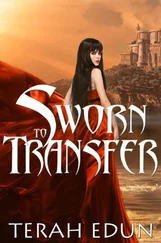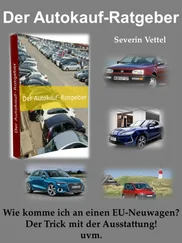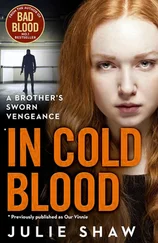Ongul, as it turned out, never received his head money. Thorir of Gard refused to pay up. He said that, as a Christian, he would not reward the use of witchcraft. Ongul took this as a weasel excuse and sued Thorir before the next assembly of the Althing. To his rage the assembled godars supported Thorir's view - he may have bribed them - and went so far as to banish Ongul. They ruled that there had been enough bloodshed and, to forestall revenge by Grettir's friends, it was better that Ongul left Iceland for a while. I was to meet Ongul later, as I will relate, but in the meantime the Gods provided me with a way to honour the memory of my sworn brother.
Thorodd was lenient in his judgement, as I had anticipated. When I was brought before him, he remembered that Grettir had spared his own life when he had challenged the outlaw on the road, and now repaid his debt by declaring that I should be set free after I had paid my captors the ten marks I had promised. This done, Thorodd returned to me my fire ruby, saying that this was what his father had instructed him to do, and undertook to settle my affairs with Gunnhildr's family. He also surprised me by handing over Thrand's old hoard chest. Apparently Thrand had left instructions that if he failed to come back from Jomsburg, I was to be his heir. I donated the entire contents of the chest to Thor. Half the silver paid for a temple mound to be erected in the God's honour on the spot where Thrand's old cabin had stood, and the remainder I buried deep in its earth.
At the feast which followed the temple dedication, I found myself seated next to one of Snorri Godi's sons-in-law, an intelligent and well-to-do farmer by the name of Bolli Bollason. It turned out that Bolli was suffering from that itch for travel which is so characteristic of the northern peoples. 'I can hardly wait for the day when my oldest son can take over my farm, Thorgils,' he confessed. 'I'm going to put it in his care, pack and head off.
I want to see other countries, meet foreign peoples and see how they live while I am still fit and active. Iceland is too small and remote. I feel cooped up here.'
Naturally his words recalled Grettir's words, begging me to travel.
'If you had your choice, Bolli,' I asked, 'which of all the places in the world would you most want to see?'
'Miklagard, the great city,' he responded without a moment's hesitation. 'It's said that there is nowhere else on earth like it — immense palaces, public baths, statues which move of their own accord. Streets paved with marble and you can stroll along them after dark because the emperor who rules there decrees that blazing torches be set up at every corner and kept lit throughout the night.'
'And how does one get to Miklagard?' I asked.
'Across the land of the Rus,' he answered. 'Each year Rus traders bring furs to sell at the imperial court. They have special permits to enter the emperor's territories. If you took a load of furs yourself, you would make a profit from the venture.'
Bolli fingered the collar of his cloak. It was an expensive garment, worn specially for the feast, and the collar was trimmed with some glossy fur.
'The trader who sold me this cloak told me that the Rus get their furs from the northern peoples who trap the animals. I haven't seen it for myself, but it is said the Rus go to certain known places on the edge of the wilderness and lay out their trade goods on the ground. Then they go away and wait. In the night, or at dawn, the natives come out secretly from the woods, pick up the trade goods and replace them with the amount of furs that they think is a fair bargain. They are a strange lot, those fur hunters. They don't like intruders on their territory. If you trespass, they're likely to put a spell on you. No one else is more skilled in seidr, men and women both.'
This last remark decided me. Thor may have put the words in Bolli's mouth as a reward for my offerings to him, but it was Odinn who determined the outcome. A journey to Miklagard would not only carry out Grettir's wish, it would also bring me closer to my God's mysteries.
So it was that, less than a month later, I had a trader's pack on my back and was plodding through the vast forests of Permia, wondering if Odinn had been in his role as the Deceiver when he lured me there. After a week in the wilderness I had yet to glimpse a single native. I was not even sure what they were called. Bolli Bollason had called them the Skridfinni, and said that the name meant 'the Finni who run on wooden boards'. Others referred to them as Lopar or Lapu and told me, variously, that the name meant 'the runners', 'witches' or 'the banished'. All my informants agreed that the territory they occupied was barren beyond belief. 'Nothing except trees grows up in their land. It's all rock and no soil,' Bolli had warned. 'No crops at all, not even hay. So you won't find cows. Therefore neither milk nor cheese. It's impossible to grow grain ... so no beer. And as for vines to grow grapes, forget it. Not even sheep can survive. So the Gods alone know what the natives do for clothing to keep out the cold when they haven't any wool to weave. They must do something. There's snow and ice for eight months in the year, and the winter night lasts for two months.'
No one at the trading post where I had bought my trade stock had thrown more light on these mysteries. All they could say was that I should fill my pack with coloured ribbons, brass rings, copper figurines, fish hooks and knife blades. They thought I was mad. Winter was coming on, they pointed out, and this was not the time to trade. Better wait until the spring when the natives emerged from the forest with the winter pelts of their prey. Stubbornly I ignored their advice. I had no intention of spending several months in a remote settlement on the fringes of a wasteland. So I had slung my pack on my back and walked away. Now, with the chill wind beginning to numb my fingers and face,
I was wondering - and that not for the first time - if I had been incredibly foolish. The footpath I had been following through the forest was more and more difficult to trace. Soon I would be lost.
I blundered on. Everything around me was featureless. Each tree looked like the last one I had passed and identical to the trees that I had seen an hour earlier. Very occasionally I heard the sound of a wild animal fleeing from me, the sounds of its alarmed progress fading into the distance. I never saw the animals themselves. They were too wary. The straps of my pack were cutting into my shoulders, and I decided that I would set up camp early and start afresh in the morning. Casting around for a sheltered spot where I could light a fire and eat a meal of dried fish from my pack, I left the faint trace of the path and searched to my left. After fifty paces or so I came across such a dense thicket that I was forced to turn back. I tried in the opposite direction. Again I was thwarted by the thick undergrowth. I returned to the path and walked forward a little further, then tried again. This time I got only twenty paces — I counted them because I did not want to lose my track — before I was again forced to a halt. Once more I returned to the path and moved forward. The bushes were crowding closer. I limped on. There was a raw blister on my right heel where the shoe was rubbing and my foot hurt. I was concentrating on this pain when I noticed that the path led to an obvious gap between the dense thickets. Gratefully I quickened my pace and walked forward, then tripped. Looking down, I saw my foot was entangled in a net laid out on the ground. I was bending down to untangle the restraint when I heard a sharp, angry intake of breath. Straightening up, I saw a man step from behind a tree. He was carrying a hunting bow, its arrow set to the string and he drew it back deliberately and quietly, aiming at my chest. I stood absolutely still, trying to look innocent and harmless.
Читать дальше








